Johan Cruyff stands among the giants of football in history. Yet, his real influence transcended the mere playing of the game. To him, football was a philosophy. Cruyff introduced a paradigm shift into a different way of playing and perceiving football. Anointed the “Father of Total Football”, Cruyff moved the game away from its former physiques and into a game of brains, beauty and creativity. Modern tactics were derived from his concepts, and that set of ideas inspired countless players. He also provided the basis for many great clubs, particularly Ajax and Barcelona.
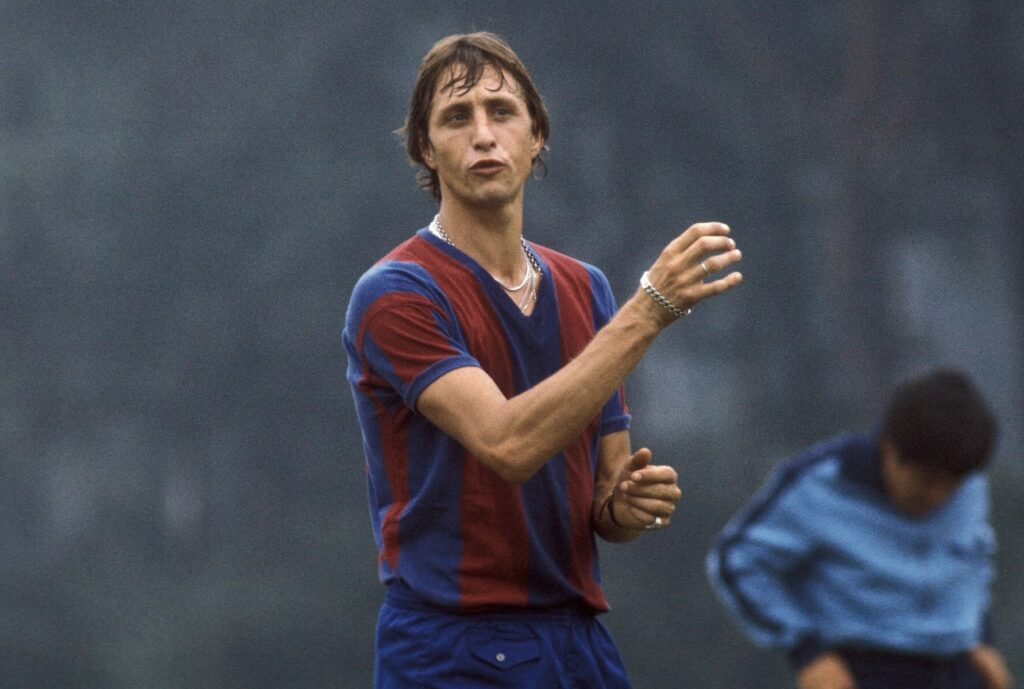
The Birth of Total Football
Cruyff did not come up with the formation of Total Football, but he surely is the one who symbolizes it. The idea was cultivated from the Netherlands in the 1960s, under the hand of coach Rinus Michels at Ajax. But it was Cruyff, who gave that theory a pulse on the football world.
Total Football was built on simple yet revolutionary concepts. This system allowed any outfield player to fill the position of another on the pitch. Players would consistently move, switching formations and making adjustments throughout the match. They wanted them – ever moving – to overload spaces and disorient the opposition. Players needed to be technically gifted, tactically intelligent and physically strong.
With his incredible intelligence and technical skill, Cruyff became the perfect example of Total Football. He led Ajax to multiple league titles and three consecutive European Cups from 1971 to 1973. Ajax’s style under Michels and Cruyff was fast, fluid and beautiful. It changed how people around the world viewed football.
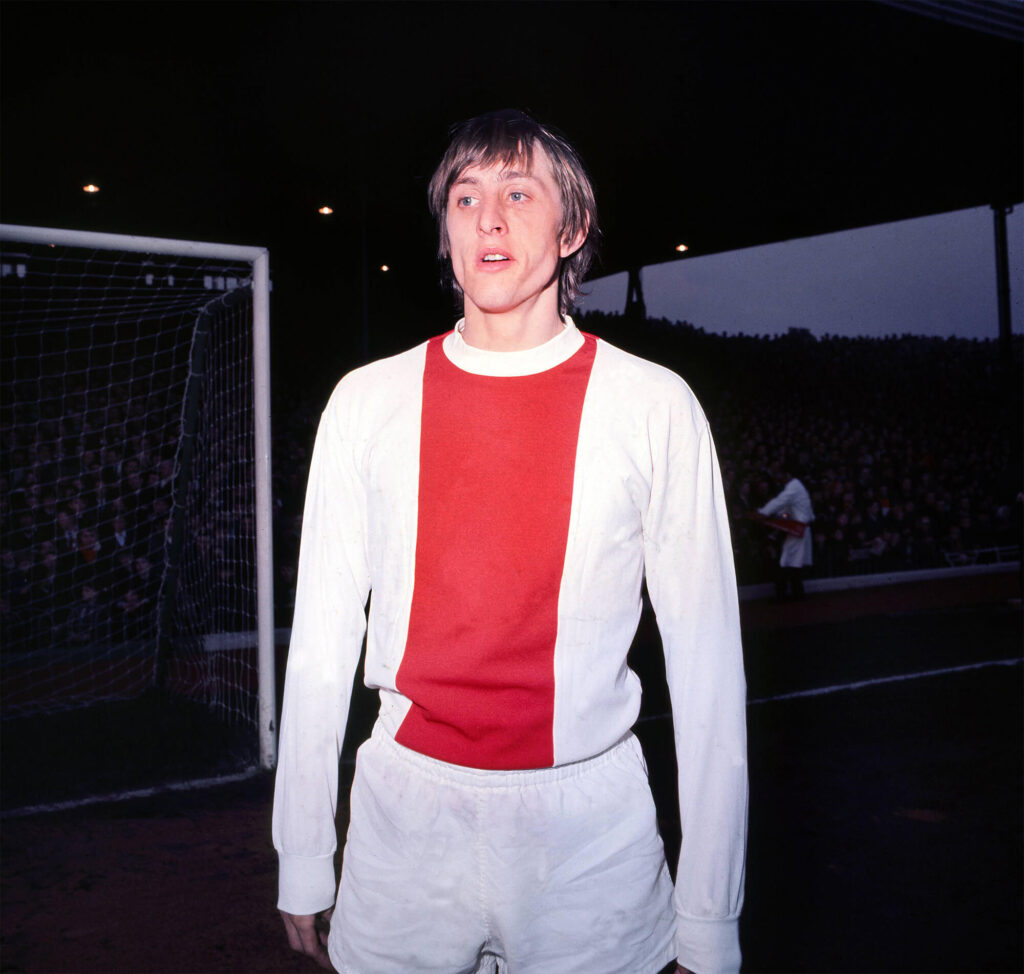
Technical Excellence: The Complete Player
Johan Cruyff was not just a tactician; he was an exceptional footballer on the field. His technical excellence made him one of the most exciting players of his generation. Cruyff had everything – pace, dribbling skills, vision, creativity, and finishing ability. He could play as a striker, winger, or attacking midfielder, always influencing the game in every area of the pitch.
In the 1974 World Cup, Cruyff fooled a defender by pretending to cross before quickly dragging the ball behind his standing leg and turning in the opposite direction. This famous move, the “Cruyff Turn,” became one of the most iconic pieces of football skill. This simple but effective trick has been taught to young footballers ever since.
Cruyff’s technical skills were not just for show. They were part of a bigger philosophy where football was played with intelligence and elegance. He believed that creating space and controlling the game with the ball were more important than simply running harder than the opponent.
World Cup Impact: The Beautiful Losers
Johan Cruyff’s biggest international achievement came at the 1974 FIFA World Cup in West Germany. He led the Netherlands to the final, and the world witnessed the full power of Total Football. The Dutch team, with Cruyff as their captain, thrilled fans with their attacking football, high pressing and quick passing.
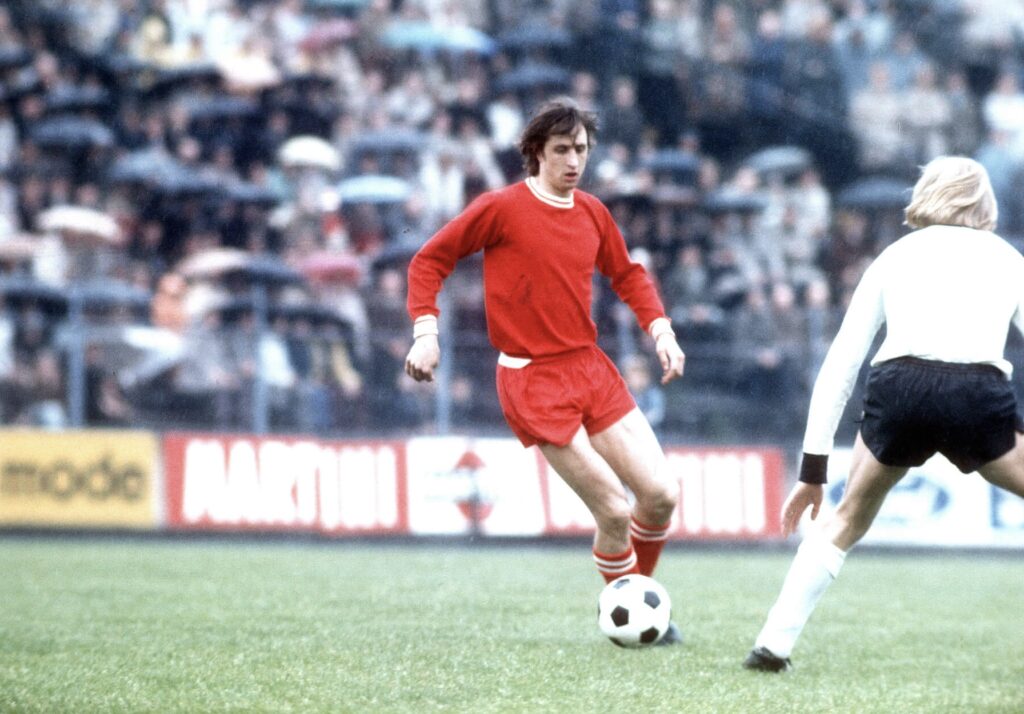
The Netherlands defeated strong teams like Argentina and Brazil on their way to the final. Cruyff’s performance throughout the tournament was brilliant. He scored goals, created chances, and controlled the tempo of every match. His leadership made the Dutch team famous for their beautiful style of play.
However, in the final against West Germany, the Netherlands lost 2-1, despite taking an early lead. This loss earned them the nickname “The Beautiful Losers.” Even though they did not win the trophy, Cruyff and the Dutch team won the hearts of football fans worldwide. Their style of football showed the world that football could be both entertaining and tactically advanced.
Barcelona Revolution: Coaching Genius
After his successful playing career, Cruyff moved into coaching. It was at FC Barcelona where his influence became even greater. He returned to Barcelona, where he had played from 1973 to 1978, and became head coach in 1988.
At Barcelona, Cruyff introduced the same principles of Total Football but developed them further. He built the famous “Dream Team” that won four consecutive La Liga titles from 1991 to 1994 and delivered Barcelona’s first-ever European Cup in 1992.
Cruyff transformed Barcelona from a club with potential into a footballing powerhouse. He focused on ball possession, attacking football and promoting young talent from the academy. Cruyff also redesigned Barcelona’s youth system, La Masia, based on his football beliefs. This academy later produced world-class players like Xavi, Iniesta, Busquets, and Messi. Under Cruyff, Barcelona built a long-term identity of possession football, which remains a key part of their success today.

Legacy in Modern Football
Johan Cruyff’s influence is visible across the modern game. His ideas shaped not just Barcelona and Ajax. They also inspired top coaches and teams around the world. Pep Guardiola, one of the most successful modern managers, often says that Cruyff was his biggest influence. Guardiola, who played under Cruyff at Barcelona, continued his mentor’s teachings. He later applied them at Barcelona, Bayern Munich and Manchester City.
Cruyff’s style is also visible in teams like Arsenal under Arsène Wenger, the Spanish national team during 2008-2012, and many others. His belief in technical excellence, positional play and beautiful football changed the direction of modern tactics.
Today, football clubs focus on youth academies, possession-based football and player development because of his ideas. His principles have become part of coaching courses and professional tactics globally.

Philosophy: More Than Just Football
Johan Cruyff was not just a football player or coach. He was a philosopher who believed that football was more than a game. He often said, “Playing football is very simple, but playing simple football is the hardest thing there is.” Cruyff believed that football should be about expression, creativity, and teamwork. For him, success was not just about winning trophies but playing football in a way that entertained fans and developed players.
Off the pitch, Cruyff was involved in charity work, creating foundations that helped children through sports. He was also an outspoken critic of the growing commercialization in football and remained true to his values. Johan Cruyff passed away in 2016, but his legacy remains strong. Stadiums, trophies, and awards are important, but Cruyff’s biggest victory was changing how the world sees football.
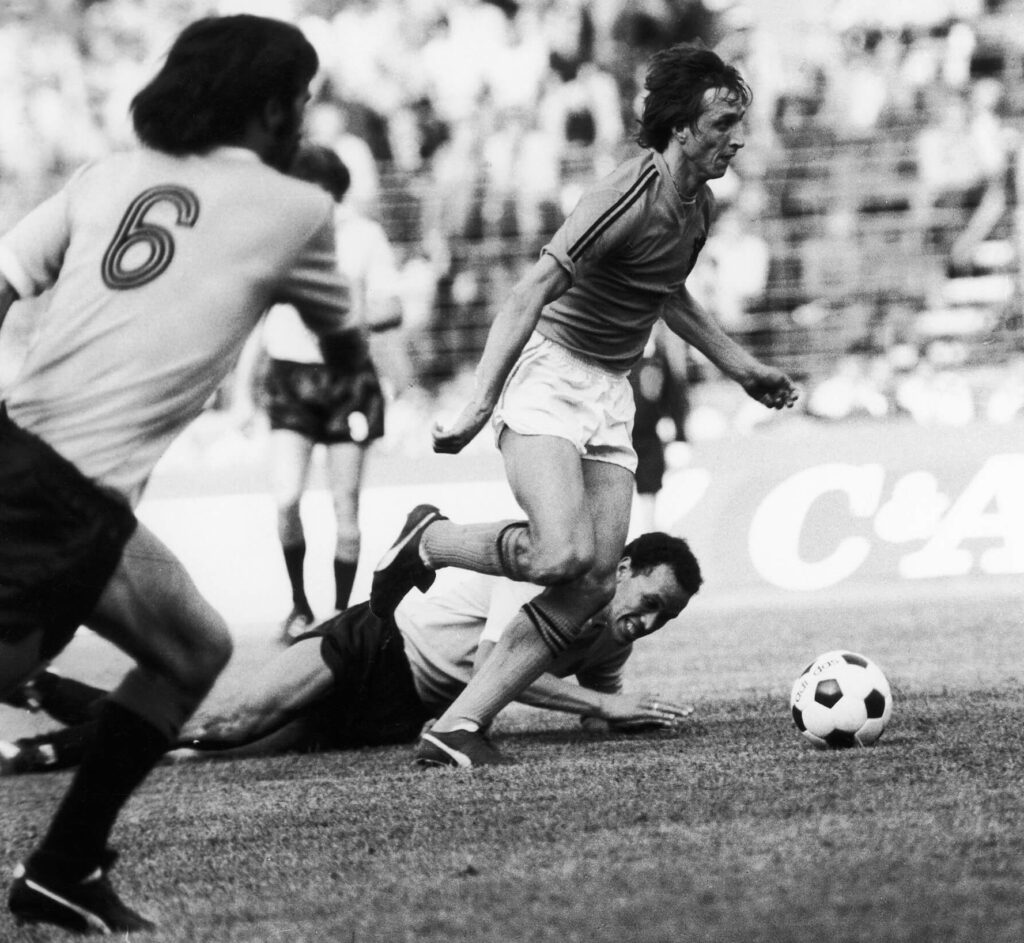
A Lasting Influence
Johan Cruyff will always be remembered as the man who revolutionized football. From leading Ajax to glory and transforming Barcelona, to inspiring modern managers – his impact is everywhere in today’s game. He proved that football could be beautiful, intelligent and successful at the same time.
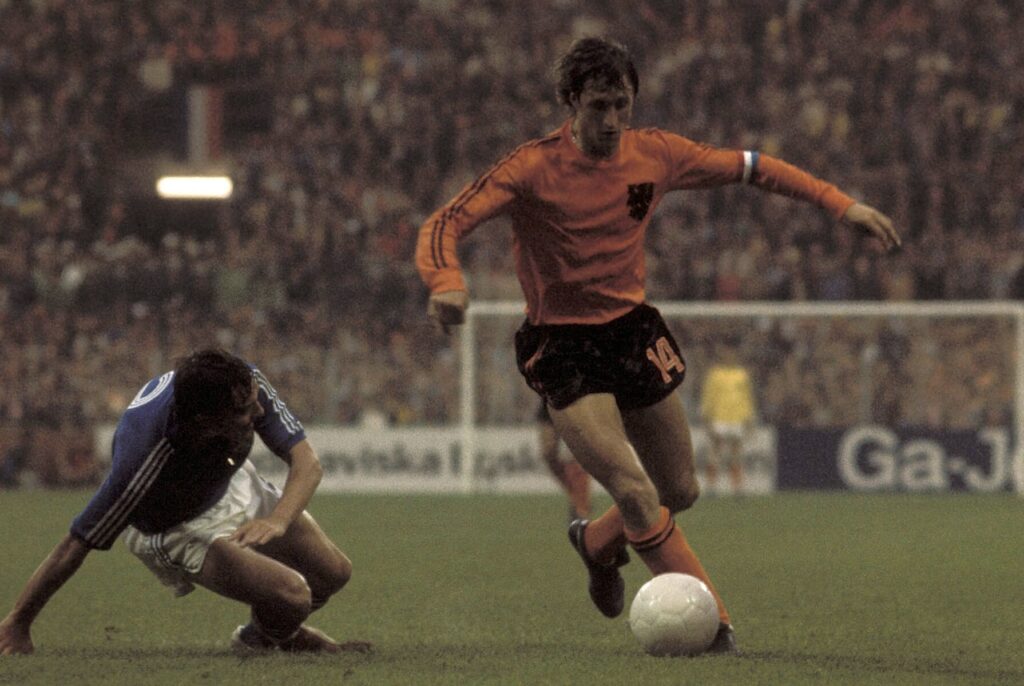
Cruyff’s Total Football is not just a tactic, it’s a way of thinking. His teachings continue to guide coaches, players, and clubs worldwide. As long as football values creativity, intelligence, and joy – Johan Cruyff’s spirit will live on.
